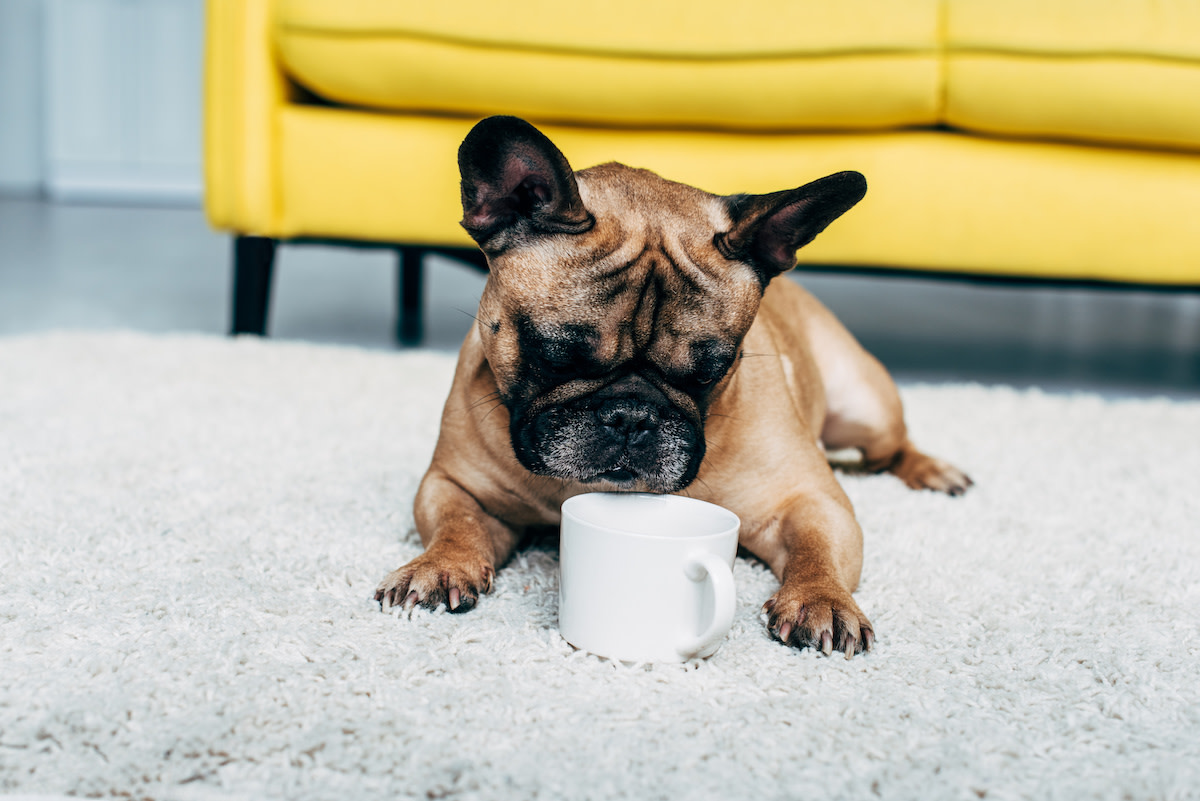Can Dogs Drink Tea? 3 Health Risks of Tea for Dogs
Written by MasterClass
Last updated: May 19, 2022 • 2 min read
Dogs cannot drink tea because the amount of caffeine in the beverage can cause health problems. While decaffeinated teas are not toxic to dogs, fresh water is the safest way for dog owners to keep their pets hydrated.
Learn From the Best
Can Dogs Drink Tea?
Dogs cannot drink tea. Caffeinated teas like green tea (made from the camellia sinensis plant), black teas like Earl Grey, white tea, or oolong tea can lead to caffeine poisoning, especially in small dogs. While decaf options like chamomile tea or ginger tea are not toxic to dogs in small quantities, they can lead to adverse side effects and should not be a replacement for fresh water.
Is Tea Bad for Dogs? 3 Health Risks of Tea for Dogs
Tea is not safe for your furry friend because it can contain:
- 1. Caffeine: While one lick of tea is unlikely to lead to caffeine poisoning, large amounts of tea in your dog’s diet can result in caffeine toxicity. Signs of toxicity include vomiting, diarrhea, tremors, elevated blood pressure, and heart arrhythmia (an abnormal heart rhythm). If you notice any of these signs of caffeine poisoning in your dog, take your pet to a veterinarian or call a pet poison helpline. While caffeine-free herbal teas—like peppermint tea and rooibos tea—are not toxic to dogs, it’s safer to offer your pet fresh water alongside their dog food.
- 2. Dairy ingredients: A common ingredient in tea is milk or creamer, which can lead to an upset stomach for your canine companion. Many dogs have a hard time digesting milk and other dairy products, especially if they are lactose intolerant.
- 3. Sugar: Many cups of tea contain sugar or sweeteners. Teas with added sugar are unsafe to add to your dog’s diet; too much sugar can cause an increase in blood sugar levels or lead to weight gain and obesity. Sugar alternatives are also a risk; the artificial sweetener xylitol is toxic to dogs.
Before Sharing With Your Pooch
Certain human foods can cause adverse reactions in canines, so always consult your veterinarian to determine whether it is safe to add these foods to your pet’s diet. This article is for educational and informational purposes and is not a substitute for medical or dietary advice.
Want to Learn More About Training the Goodest Boy or Girl?
Your dream of having a dog who understands words like “sit,” “stay,” “down,” and—crucially— “no” is just a MasterClass Annual Membership away. The only things you’ll need to train up a well-behaved pup are your laptop, a big bag of treats, and our exclusive instructional videos from superstar animal trainer Brandon McMillan.
